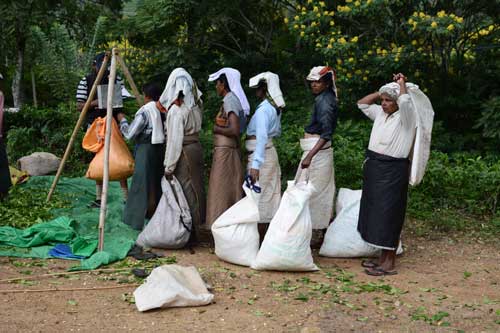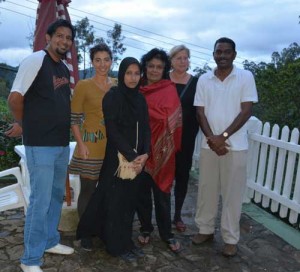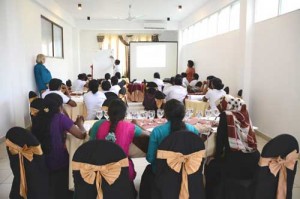Bloggers: Jennifer J. Infanti (Department of Public Health and General Practice, NTNU), Ragnhild Lund (Department of Geography, NTNU) and Kumudu Wijewardene (Department of Community Medicine, University of Sri Jayawardenepura, Sri Lanka)
Sri lanka is one of the world’s largest exporters of tea. The origins of the tea plantations date back to the mid-1800s when the country was under British rule.
During this era, the British tea planters brought low-caste, primarily Tamil-speaking labourers from villages in South India to Sri Lanka to work in the plantations. For most of their history in Sri Lanka, the plantation workers were not recognised as citizens of Sri Lanka and therefore had few entitlements or rights in the country. They could not vote, own land, access government health services, open bank accounts, or secure employment outside the tea plantations.
Today, the tea plantation workers have citizenship rights and access to education and free government health care. However, poverty is still widespread in the plantation sector, and social and health inequalities persist.

Tea pluckers at the day’s end, waiting to have their raw tea leaves weighed. (Photo: Jennifer Infanti)
During September and November this year, we carried out six weeks of research in Badulla district – an area in central Sri Lanka known as the ‘hill country’, where approximately 180 tea plantations are located. Our stay was part of the GLOBVAC-funded ADVANCE study, led by Berit Schei, which aims to improve antenatal care provided to women living with domestic violence in Nepal and Sri Lanka.
… aims to improve antenatal care provided to women living with domestic violence in Nepal and Sri Lanka.

Our extended research team in Badulla district. From left to right: Yohan (driver & assistant), Jennifer, Anwara (research assistant), Kumudu, Ragnhild, Jim (driver & assistant).
During our stay in Badulla, we met pregnant women, public health midwives and other health care workers living and working in the tea plantation sector. Our main focus was on how public health midwives identify and care for women living with domestic violence in the plantation sector. What challenges do they face? What resources can they draw from, and where and how are their efforts limited?
To answer these questions, we held a number of group interviews with midwives, covering many of the remote plantations in the district. Following the group interviews, we identified some initial findings and presented these to the midwives at a participatory workshop the following week for their verification and correction.
The prevalence of domestic violence in the plantation sectors, including during pregnancy, is amongst the highest in Sri Lanka. Public health midwives do not have an official mandate to address domestic violence, but in settings where as many as 50 % of women may experience physical violence in their homes, midwives are forced to intervene in some situations due to the potential health consequences of violence for pregnant mothers and their babies.
In our research, we have identified a number of physical, social and symbolic assets and strategies which midwives draw upon or use in order to provide maternal care services to women experiencing domestic violence in the plantation estates. Our findings also point to a wide array of complex institutional and contextual constraints that complicate the provision of care. We are currently analysing our data, and plan to submit our findings to an academic journal in early 2015, so stay tuned for the final results next year.


